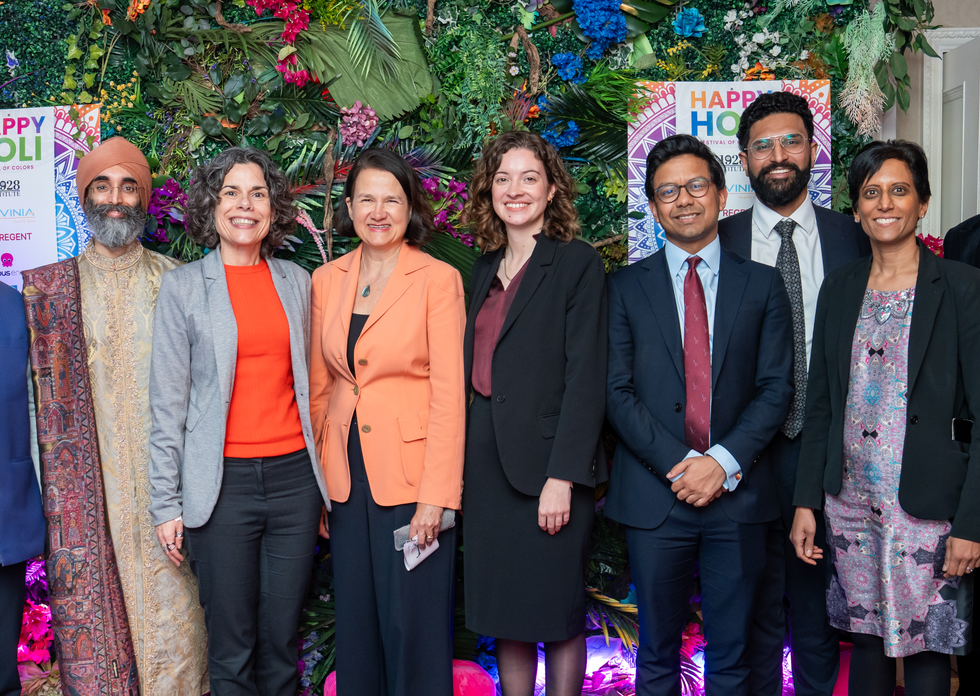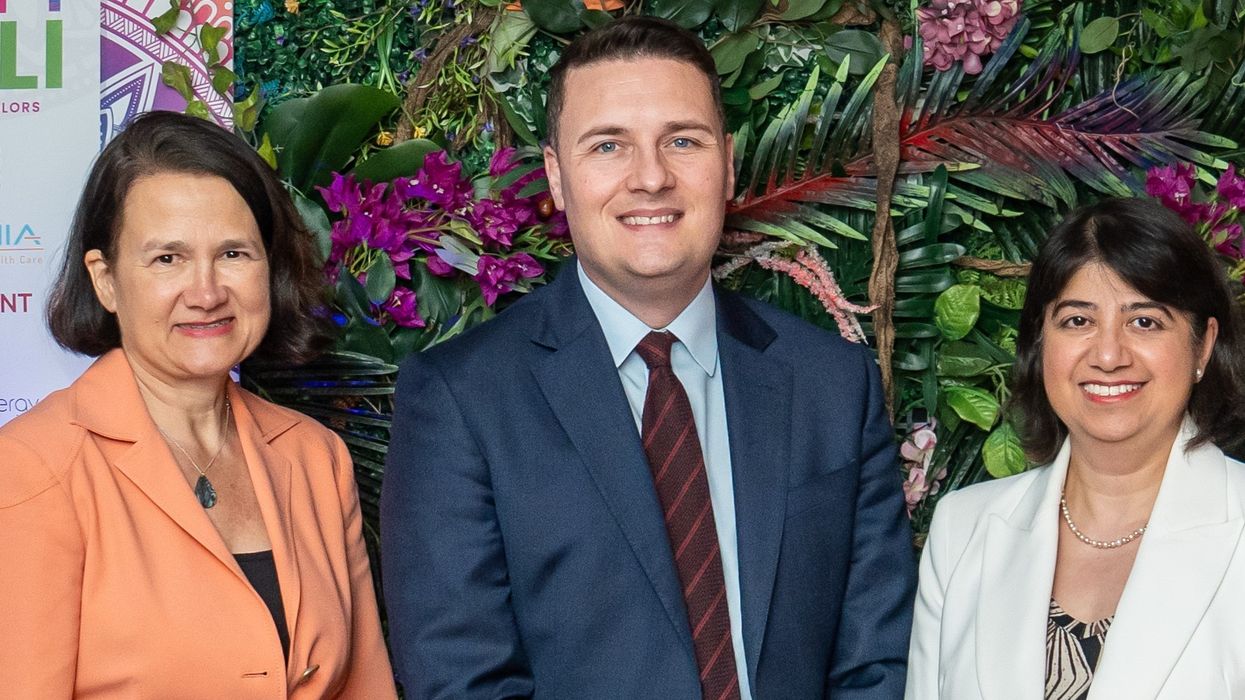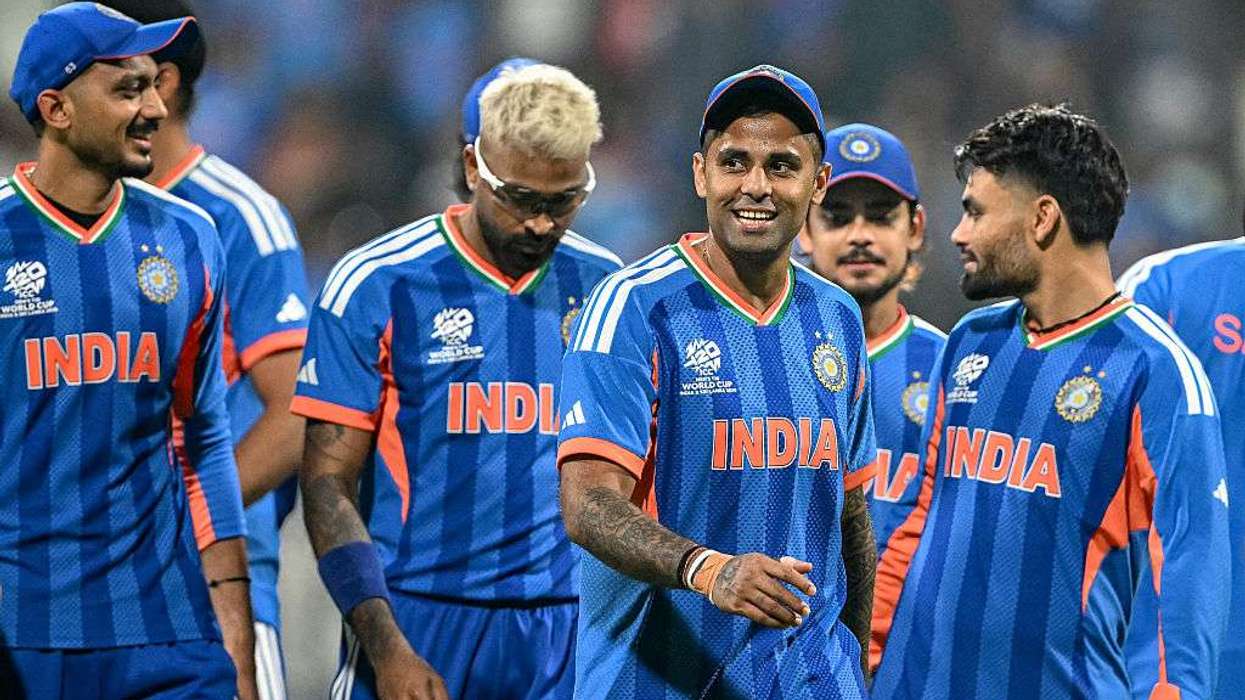THE recent health and life sciences agreement between the UK and India will strengthen cooperation on healthcare innovation and security in both countries, health secretary Wes Streeting said.
Speaking at the Holi reception organised by the 1928 Institute, who are the secretariat for the India All-Party Parliamentary Group, in London on Monday (24), he added that the contribution of British Indians has been pivotal in the growth of the NHS since its inception in 1948, and a robust partnership between the two nations will ensure we have a healthcare provider 'fit for the future'.
In January, Streeting and Indian health minister JP Nadda signed a five-year memorandum of understanding (MoU) to deepen collaboration in critical health sectors. It focuses on joint efforts to address global health challenges, including antimicrobial resistance (AMR), non-communicable diseases (NCDs), digital health innovations, and pharmaceutical advancements.
Streeting described the tie-up as an “equitable partnership” that will advance the frontiers of science, technology, and medicine for the benefit of the world.
He said, “The NHS must serve everyone, regardless of background or ability to pay. We have a responsibility to ensure the equitable principles of its founding continue to thrive in the 21st century, just as they did in the 20th century”
The Ilford North MP said that the strong Indian diaspora community in his constituency is a symbol of the living bridge between the two countries.
“Many of my constituents are proud of both their British and Indian heritage. We are fortunate to have British Indians playing such a crucial role in our society. These ties run deep. As India grows in strength and influence, becoming one of the global powers of the 21st century, our partnership becomes increasingly important. During the pandemic, the 1928 Institute played a significant role in ensuring a successful vaccine rollout, reaching communities that might otherwise have been overlooked,” he said.
During the event, Lord Krish Raval shared the Holi message from prime minister Keir Starmer.

Starmer said, "Labour's victory in the last election was a mandate for change, a call to build a fairer, more prosperous Britain. Real change is not achieved by government alone. It is shaped by the dedication, ingenuity, and hard work of people across our country.
“The British Indian community has long been at the heart of that effort. Your contributions continue to inspire me, and I look forward to working with you to shape a brighter future here at home and to renew and strengthen our deep ties with India—a relationship that enriches both our nations.”
Equalities minister Seema Malhotra said that the government is working together to tackle inequality based on race, disability, and gender, to build a more equal world with opportunities for all.
“What we hold dear is the strength of our relationships, the pride in our diversity, and the leadership of our nations standing together as an axis of progress. We're forward-thinking about how our businesses can work more closely, how our cultures can be more connected, and the opportunities for the next generation. Our work is about defending the present while investing in the roots of tomorrow's progress,” she said.
“Holi is a wonderful festival - beyond its religious significance, it's a celebration of spring, renewal, hope, and optimism. And we need optimism in our increasingly complex world, with unpredictable dynamics and constant change.”
According to Catherine West, Foreign Office Minister for the Indo-Pacific, the UK hopes that the new comprehensive strategic partnership and trade deal will bring British and Indian communities closer together.
She added that the recent UK visit by Indian external affairs minister Dr S Jaishankar made it clear that both governments recognise the untapped potential of their partnership and are committed to reinvigorating diplomatic ties.
"We now have new consulates in Manchester and Belfast, demonstrating how these relationships are growing throughout the United Kingdom," the minister said.
Formed by Oxford academics of Indian origin, the 1928 Institute seeks to create meaningful dialogue for British Indians. Through events, research, and community engagement, it highlights the rich and varied experiences of the community, celebrating the complexity of their cultural identity.
MPs Barry Gardiner; Deirdre Costigan; Sarah Coombes; Kanishka Narayan; Shivani Raja, and Baroness Sandy Verma, Lord Jitesh Gadhia and Lord Navnit Dholakia attended the event along with diplomats, business leaders from the UK-India corridor, and British Indian artists.




